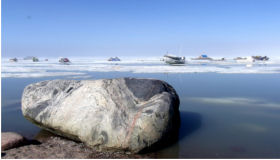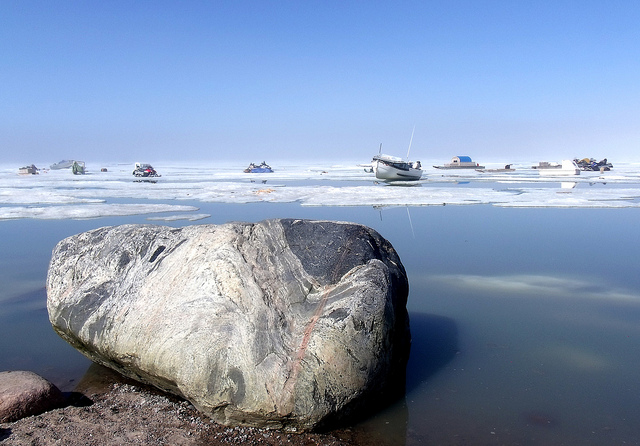Carey DeGenaro
Climate change is predicted to have adverse impacts especially on Pacific small island states whose inhabitants are currently living with the imminent threat of sea level rise. This is the reality for the Marshall Islands where many of the residents have chosen to move to neighboring Hawaii or California in the United States as freshwater is becoming scarce and a decline in fish stocks make it difficult to maintain a sustainable livelihood. Climate change will also affect non-island nations like Mexico, where low crop yields induced by severe drought force farmers to relocate. Another example is the indigenous and First Nations Canadian population that, due to a decline and thinning sea ice, face problems of unsafe ice which in turn reduces their access to various marine food sources. As such, climate change creates a serious threat to human health and the survival of some of the most vulnerable populations, whose futures lie in relocation and resettlement. The United States, as many other developed countries, lacks a clear definition and recognition of the term ‘climate change refugees’ in the political agenda. Consequently, leaving the migrants from the Marshall Islands, Canada and Mexico with an ‘undocumented status’, meaning that they don’t have the same legal protection as an American citizen or other kinds of refugees and migrants. The author highlights the various problems that the concept of ‘climate refugees’ causes and the uncertainty it brings to the refugee policy of the host country.
Image credit: Mike Beauregard (CC BY 2.0). Flickr.com
Chanelle Andrén is a volunteer UK Climate Change and Migration Coalition and writes the weekly round up of new research on climate change, migration and displacement. Her background is in International Human Rights Law with specialisation in ‘Just Transitions’.




Climate
Refugee? Illegal Migrant?
Climate Migrants are in Hellish Boat Journey at Andaman Sea. Need urgent solution, Farsighted Plan and Concerted, Cooperative effort of the Global Community
Everyone shall agree that Sea Tour/Boat Journey is very much charming. Presently some people are on Sea Tour in Andaman Sea and I am sure none of them will say that this tour is charming. Rather they stated this is the pain, inexpressible, unbearable sufferings like in hell.
Someone stated they experienced life in hell before their death. Global community defines or address them illegal migrant. And the nearest country Thailand, Malayasia, Myanmar cruelest to those helpless victims, didn’t agree to arrange temporary shelter for them even.
We believe this is the peak time for the global community to justify how they have become such an unacceptable human being? Are they really unacceptable to all? Are those people on Andaman Sea giving any message for the global community? Could we spend our few minutes to ponder on the point ? http://goo.gl/ReoeLW